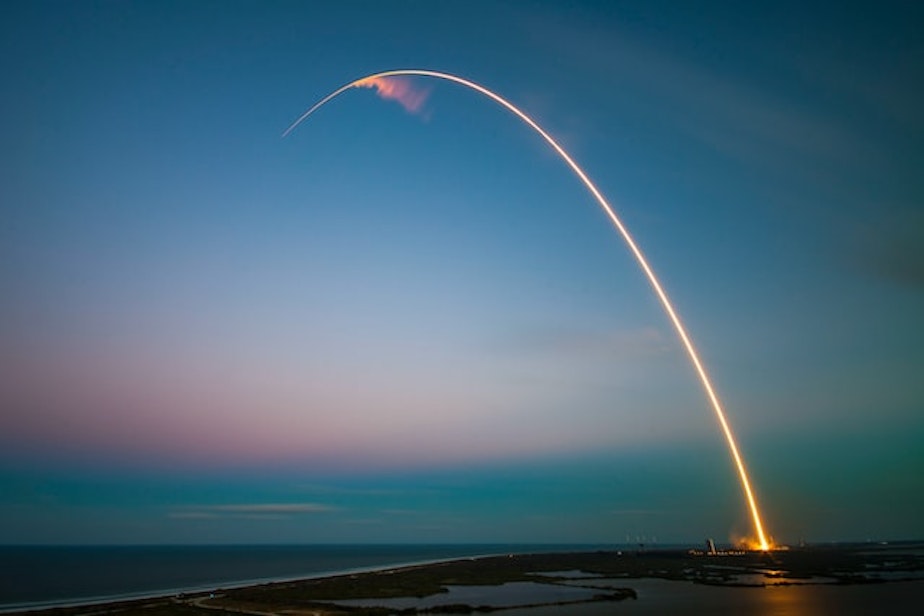Space, our final dumping ground. Can we clean it up?

Last week, U.S. Senator Maria Cantwell (D-WA) introduced a new bill calling for the removal of "space junk."
The Orbital Sustainability Act, or the ORBITS Act, aims to promote the development of technology and methods to clean up rocket and satellite debris orbiting Earth.
Space junk — satellites and other detritus in orbit around Earth— is a growing problem. According to Sen. Cantwell's office, there are around 900,000 pieces of junk circling our stratosphere right now.
While much of that junk floats around Earth or disintegrates as it enters the planet's atmosphere, there are cases of debris falling to the surface.
Last year, a piece of a SpaceX rocket landed on a farm in Grant County, Wash. No one was hurt. But the prospect of fiery balls of metal crashing into farmland, or anywhere else, is cause for concern.
"Often, when we launch a satellite, there is some stuff that falls off as part of the launch process," said Dr. Meredith Rawls, a research scientist with the Department of Astronomy at the University of Washington and the Vera C. Rubin Observatory.
"That can be a chunk of a rocket, or just little bits and pieces that are designed to be able to fall off without harming the function of the satellite itself."
Sponsored
One way space junk might be removed in the future is with the help of the Tukwila-based company Starfish Space, which produces the "Otter" satellite.
"It's a satellite servicing vehicle, that's a small satellite that can grab and move other satellites in space," said Austin Link, one of the company’s co-founders.
The otter satellite goes on missions to prolong the life of valuable satellites and can also dispose of space debris.
Rawls said that the growing number of satellites and other debris may not feel like an immediate problem. Currently, there is no restriction on the number of satellites or other space-based objects a company can send into space.
But the Orbital Sustainability Act would enact such regulations.
Sponsored
"It says, 'You need to be thinking about debris along the entire design cycle of your satellite or spacecraft,'" Rawls said. "It incentivizes minimizing that either from the outset, or coming up with new creative ways to clean it up after the fact."
The Orbital Sustainability Act has a long way to go before it gets to the president’s desk. It's first step: getting through the Senate.




